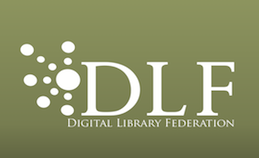Moving Forward: Examining the Needs to Re-tool LAMs Data
Constellation E: Tuesday, November 1, 10:30AM – 12:00PM
This workshop is limited to 40 participants.
***The sign-up for this workshop is now closed. Please see below for
participants and wait list. If you are on the participants list and decide
not to attend, please email jwinberry@clir.org***.
Discussions with librarians and archivists who are ready to move to the next generation of discovery environment includes the consistent and loud complaint for the “how to do what needs to be done”. There is a crying need to identify and describe tools that would help metadata librarians manipulate, refactor, or repurpose their metadata. The death of MARC and the mixing of data from all aspects of the Library, Archive and Museum community call for a rethinking of metadata and the need for tools to help facilitate the forward progress of the LAM dataset. This is explicitly clear in the context of converting to linked data. As traditional librarians move towards incorporating and participating in new standards, projects and programs such as RDA, VIAF or FAST, many institutions will be looking to incorporate identifiers to prepare for linked data. Conversations amongst appropriate people and coordinated action could reduce duplication of effort and assist those in need. Each library should not be an island working independently and alone.
The intent of the workshop is to identify commonly desired tasks that 1) require a bit more scripting or programming savvy than many metadata librarians have, 2) could benefit staff at multiple institutions and 3) be developed and used uncoupled from specific local infrastructures. Successful outcomes would then inform the setting of priorities and identifying resources. A side benefit of such a workshop session would likely be the discovery of approaches that others have already used to accomplish some of the tasks. Potentially the final results would include use case studies that could inform post conference workshop between coders and librarians.
Resources
Participants List
Ann Caldwell
Gregg Silvis
Emily Gore
Viral Amin
Shawn Averkamp
Mike Giarlo
Leah Prescott
Laura Smart
Chris Awre
Cecilia Tittemore
Diane Hillmann
Jackie Dooley
Corey Harper
Kevin Clair
Mikki Macdonald
Wendy Robertson
Kevin Ford
Timberly Wuester
Christa Maher
Liz Madden
Carolyn Caizzi
Michael Friscia
Cynthia Ghering
Jim Kuhn
Cheryl Gowing
MJ Han
Kyle Rimkus
David Lindahl
Jefferson Bailey
David Lacy
Andrea Medina-Smith
Beverly Turner
Sarah Potvin
Heidi Frank
Tip Ros
Daniel Lanz
Mark Matienzo
Tyler Danstrom
Cliff Wulfman
Nancy Fallgren
Wait List
Jon Stroop
Mark Dehmlow
Laura Akerman
Jane Mandelbaum
Mary Manning
Nadia Seiler
Linda Thomas
Lisa Colvin
Session Leaders
Suzanne Pilsk is the Head of the Metadata Unit in the Technical Services Division of the Smithsonian Institution Libraries, a position she has held since 1993. Through her career she has been a special librarian, a solo librarian, cataloger, and metadata specialist. A graduate of Trinity College, Hartford, CT (B.A.) and Vanderbilt University (M.L.S.), Suzanne has written and presented on metadata, special projects, and cataloging in the field of special, academic, and museum libraries. Her most recent work has focused on metadata needs of the Smithsonian Institution Libraries’ hidden collections, the international consortium effort to digitize taxonomic literature in the Biodiversity Heritage Library project, and attempting to keep up with traditional cataloging in MARC, AACR2 and RDA. In preparing for the future needs of the Institution, Suzanne is attempting to move the traditional metadata collected into the new world of linked open data.
Robin Wendler is the Senior Metadata Analyst in the Office for Information Systems in the Harvard University Library. With a B.A. in Classics from the College of William and Mary and an M.L.S. from Syracuse University, Robin found that learning languages has a lot in common with metadata analysis. Originally an art and architecture cataloger, in recent decades she has worked closely with many constituencies at Harvard to define functional requirements for systems, services, and digital content. She has been involved in the creation or development of many metadata standards and schemas, including MARC, METS, MODS and PREMIS, and has written and consulted on metadata design, visual resource description and digital preservation.
